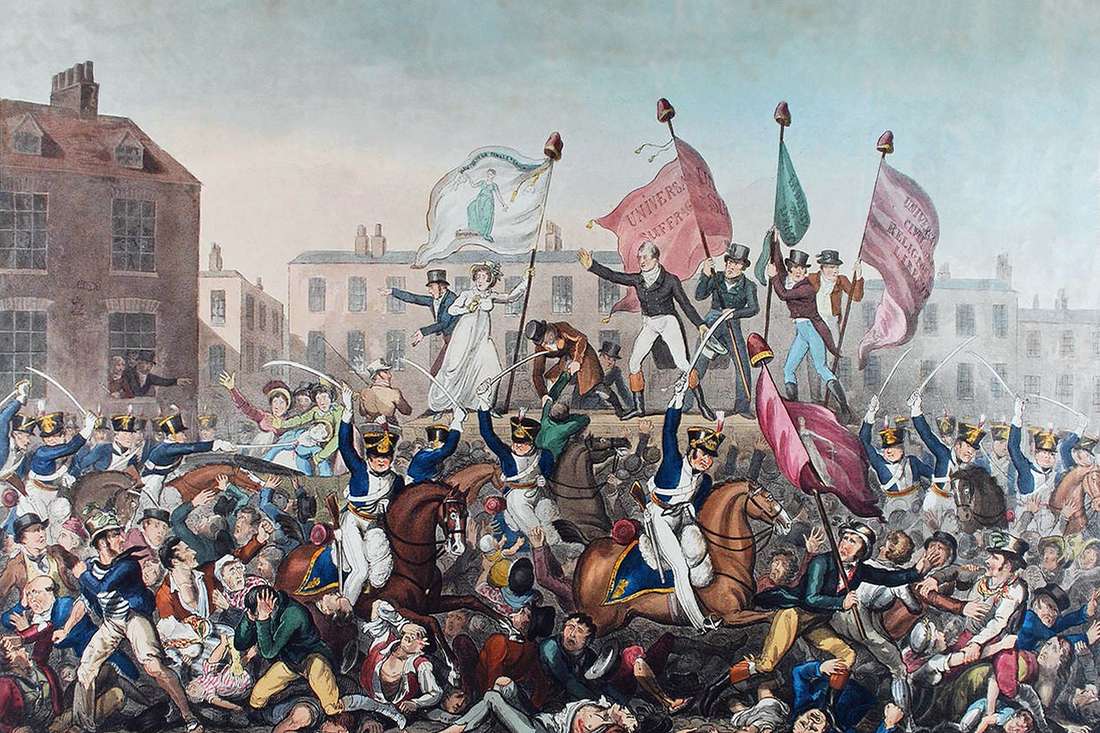Manchester was the first city to industrialise,[1] because of the Industrial Revolution. It became the main place for making cloth and fabric.[2] During the 19th century it had the nickname Cottonopolis,[2] because it had so many cotton mills. The middle of Manchester is important because of its network of canals and mills built during its 19th-century development.[3]

In the late 18th century, Manchester was much smaller than it is today with about 40,000 people living there.[4] This changed at the start of the Industrial Revolution. During this time, there were revolts about the living conditions for workers. The most well known of these revolts was the Peterloo Massacre. Fifteen to twenty people were killed during the Peterloo Massacre and hundreds of other people were hurt.[5] In 1780, Richard Arkwright built the first cotton mill in the area.[6]
Later in the 1800s, Manchester became most important cotton town in the world. It was also the first 'industrialised' city, meaning that it was the first city to have a big amount of industry in it.[7] Only a small amount of cloth is still made in the city and the trade has mainly stopped. This left a big number of old buildings from that time including the Town Hall, Free Trade Hall and Central Library and left a lot of other buildings empty.
The Manchester Ship Canal was created by the digging of canals in the rivers Irwell and Mersey for 36 miles (58 km) from Salford to the Mersey estuary. This let ocean going ships sail into the Port of Manchester.
The county of Greater Manchester was made in 1974. The county was made from cities and towns in southern Lancashire and northern Cheshire (the two main areas which make up Greater Manchester), and some mainly rural districts of Derbyshire and Yorkshire.
In 1996, the Irish Republican Army put a bomb in a truck in the centre of the city. Nobody was killed, but it did a lot of damage.[8]
On 22 May 2017, a bombing occurred at the Manchester Arena which killed 22 people and injured 55.[9] It was a suicide bombing.[10]
References
Wikiwand in your browser!
Seamless Wikipedia browsing. On steroids.
Every time you click a link to Wikipedia, Wiktionary or Wikiquote in your browser's search results, it will show the modern Wikiwand interface.
Wikiwand extension is a five stars, simple, with minimum permission required to keep your browsing private, safe and transparent.
